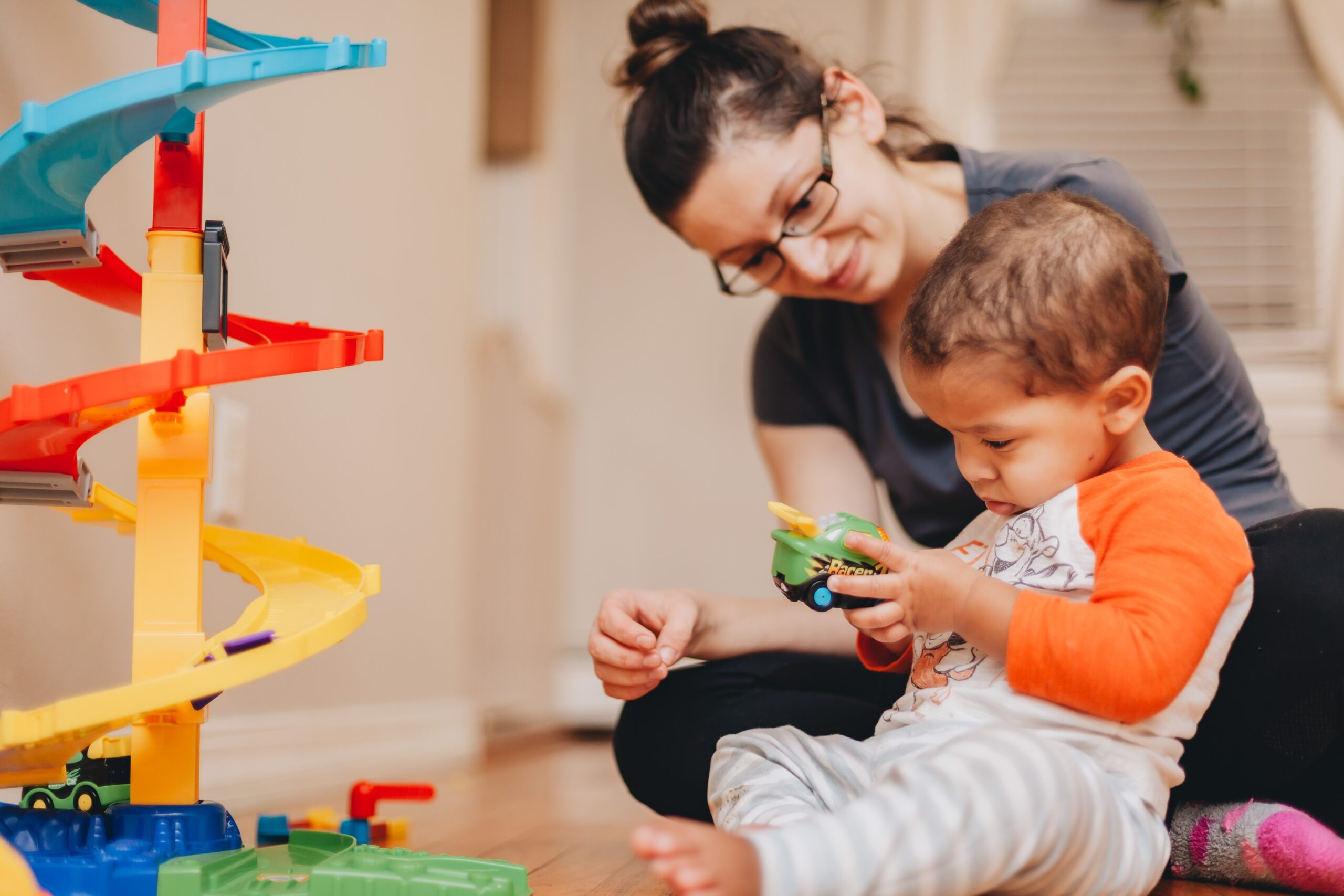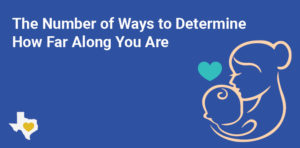
Becoming a parent is one of the most life-changing decisions you’ll ever face—and it’s completely normal to ask yourself: “Would I be a good mom?” If that question has been on your mind, you’re not alone. Many women—whether they’re expecting a baby now or thinking about the future—grapple with feelings of doubt, uncertainty, and fear, and worry is a natural part of this process. These emotions are often deeply felt and can sometimes be hard to articulate.
The truth is, there’s no single formula for being a good mom. Everyone’s circumstances, strengths, and struggles are different. It’s normal to question different paths or outcomes when considering motherhood. But there are a few key questions you can ask yourself to better understand your own readiness and confidence—and to help you explore your options in a safe, supportive, and judgment-free way.
Let’s walk through some of those questions together.
Introduction to Motherhood
Motherhood is one of life’s most profound journeys, filled with both challenges and moments of deep joy. Deciding whether you’ll be a good mom isn’t about fitting into a single mold or living up to someone else’s expectations. Instead, it’s about exploring the qualities that make for nurturing, loving, and effective parenting. Psychology shows us that while every mom and child are unique, there are certain traits—like empathy, patience, and adaptability—that often help women thrive in motherhood.
It’s important to remember that there’s no one-size-fits-all approach to being a good mother. Each woman brings her own strengths, experiences, and perspective to parenting.
There are plenty of “good mom quizzies” out there that provide results you should take with a grain of salt. The best first step is to listen to yourself and reflect on your own qualities, identify areas where you feel confident, and spot places where you might want to grow. This kind of self-exploration isn’t about judgment—it’s about understanding yourself better so you can make informed choices for your family and your life.
As you move through the course of motherhood, you’ll find that effective parenting is a journey, not a destination. By being open to learning and willing to explore your own path, you’re already taking important steps toward being the kind of mom your child needs.
1. Am I Emotionally Ready for Parenthood?
Raising a child isn’t just about diapers and baby bottles—it’s an emotional journey that takes patience, love, and resilience. While you don’t need to feel 100% prepared (no one ever does!), it’s helpful to reflect on how you currently feel about motherhood. Being present for your child and yourself is essential for building a strong emotional foundation.
- Do I feel emotionally stable and able to care for another person?
- Do I have unprocessed trauma or mental health challenges I’m still working through?
- Can I see myself providing consistent love, support, and safety for a child?
- Am I able to respond thoughtfully and calmly to my child’s emotions or needs?
If these questions leave you feeling unsure, that’s okay. Parenting doesn’t require perfection. But being aware of your emotional well-being—and having a support system to help you—is important. It’s also crucial to hear your own needs and feelings as part of your emotional readiness.
2. Do I Have a Strong Support System?
You don’t have to raise a baby alone. But knowing who would be in your corner can make a big difference.
- Do I have family or friends who would help with childcare, emotional support, or finances?
- Is there someone I can call in the middle of the night if I need help?
- Are there community or faith-based organizations I can turn to?
Having support doesn’t mean you have to be in a relationship or have a big family. Support can come from friends, mentors, counselors, or adoption professionals. If your support system is limited or uncertain, that may impact your decision—or it may simply be a sign to explore other resources.
3. Can I Meet My Child’s Basic Needs—Now and Long Term?
Financial stability is one of the most common concerns women have when considering parenthood. Children require much more than love—they need shelter, food, clothing, education, medical care, and a safe environment to grow, including a safe room or space in the house where the child can feel secure and supported.
Ask yourself:
- Am I currently employed or able to provide stable housing?
- Do I have a room or space in my house for a child?
- Can I afford to support a baby on my own?
- What would childcare look like if I had to return to work?
Even if the answer to these questions is “not right now,” that doesn’t mean you’re not a good person or wouldn’t be a good mom under different circumstances. Many women find themselves in temporary financial hardship and simply need time or support to regroup. If you’re worried about meeting your child’s needs, that’s a valid reason to explore all your options, including open adoption.
4. Am I Ready to Prioritize a Child’s Needs Above My Own?
Being a parent means making sacrifices—your time, your energy, your sleep, your career goals—and for many, even your social life. For some women, those sacrifices feel natural and worth it. For others, they feel overwhelming or incompatible with their life plans. Adapting to babies’ routines and needs, such as responding to a crying baby or adjusting to infant sleep patterns, is a significant part of this transition.
Consider:
- Am I ready to change my daily life around a baby’s schedule?
- Would I feel resentful if I had to delay school, work, or travel plans?
- Do I feel ready to invest the time it takes to be an engaged parent?
There’s no shame in saying “I’m not ready yet,” or “I don’t know if I can make that commitment.” In fact, being honest with yourself about your limitations is a powerful sign of maturity and care.
5. Do I Want to Parent—Or Do I Just Feel Like I Should?
Sometimes women feel pressure from others or society to keep the baby or become a parent, even if their gut says something different.
Imagine what parenting or choosing an alternative path might look like for you.
Ask yourself:
- Am I considering parenting because it’s truly what I want?
- Or am I feeling guilty, pressured, or unsure of other options?
- Have I allowed myself space to explore parenting alternatives like adoption?
It’s okay to ask hard questions and admit you don’t have all the answers. That doesn’t mean you’re selfish or irresponsible. It means you care enough to want the best outcome—for yourself and your baby.
Mental Health and Motherhood
Your mental health is a cornerstone of your ability to be a good mom. When you’re feeling balanced and supported, you’re better equipped to handle the ups and downs of daily life with your child. A good mom quiz can sometimes highlight areas where you might be struggling—like anxiety, depression, or stress—and point you toward resources that can help.
Self-care isn’t selfish; it’s essential. Taking time for activities that bring you joy, relaxation, or a sense of calm can make a big difference in your overall well-being. When mothers prioritize their mental health, they’re not only caring for themselves—they’re also creating a more stable, nurturing environment for their children. Kids are sensitive to their mother’s emotional state, and a mom who feels supported and cared for is more likely to build a strong, positive relationship with her child.
If you ever feel overwhelmed, remember that seeking support is a sign of strength, not weakness. Whether it’s talking to a friend, joining a support group, or reaching out to a mental health professional, taking care of your mental health is one of the best gifts you can give yourself and your family.
Parenting Styles and Expectations
Every mother brings her own unique approach to parenting, shaped by her own experiences, values, and personality. Some moms might find themselves naturally setting firm boundaries, while others lean toward a more flexible, permissive style. There’s no single “right” way to parent, but understanding your own style can help you become a more effective parent.
It’s important to have realistic expectations—not just for your child, but for yourself as a mother. Children are individuals, and what works for one may not work for another. Being open-minded, willing to adapt, and ready to learn from both successes and mistakes are all hallmarks of a good mother.
Effective parenting often involves setting clear boundaries, being consistent, and providing emotional support. These skills can be developed over time through self-reflection and a willingness to try new methods. By creating a supportive environment and staying attuned to your child’s needs, you’re helping your children thrive—and building your own confidence as a mom along the way.
Qualities That Make Someone a Good Mother (That You Might Already Have)
Even if you’re not ready to raise a child right now, it’s worth remembering that you might already have qualities that reflect what it means to be a good mother:
- You’re asking thoughtful questions and trying to make an informed choice.
- You care about your child’s future.
- You’re honest about your own limitations and needs.
- You’re exploring options rather than avoiding them.
A good mom encourages her child, teaches important lessons, and creates fun, engaging experiences that support her child’s interests. She uses discipline and sets boundaries in a loving way, helping her child learn right from wrong and understand that making a mistake is part of growing. A good mom helps her child deal with struggles and bad days, showing that dealing with challenges builds resilience and self confidence. She knows how to laugh and bring fun into everyday life, making room for joy even when things are tough. One thing all great mommies have in common is the willingness to learn and grow, knowing that being a dependable parent doesn’t mean being perfect, but always being ready to teach, encourage, and create a nurturing environment.
A good mom isn’t perfect. She’s someone who acts with love, integrity, and intention—whether that means parenting herself or making a selfless decision like placing her baby with a loving adoptive family.
What If I’m Still Not Sure?
It’s perfectly normal to be unsure. Being caught between “I want to do what’s best for my baby” and “I don’t feel ready to raise a child” is one of the hardest emotional spaces to be in. You might even guess at your own readiness as a mom, feeling uncertain about your qualities or decisions.
If you’re feeling torn, you don’t have to figure it all out alone. Talking to someone—confidentially and without pressure—can bring you clarity and peace of mind. Texas Adoption Center is here for that. We’ve helped countless women explore their options, including parenting support, adoption planning, and emotional counseling.
You deserve support, no matter what path you choose.
Adoption as an Option (Not a Last Resort)
If parenting doesn’t feel like the right decision for you right now, adoption may be a loving, empowering option worth considering.
There are different types of adoption available today, including:
- Open Adoption: You choose the adoptive family and can maintain contact (letters, pictures, or even visits).
- Semi-Open Adoption: Communication takes place through a third party like Texas Adoption Center.
- Closed Adoption: No contact or exchange of information after placement.
Taking quizzes can also help you reflect on your feelings about adoption and parenting, providing clarity as you consider your options.
Adoption is not giving up. It’s choosing a different path—one that still reflects your love and hopes for your child. In many cases, birth mothers feel empowered knowing they gave their baby the chance to grow in a stable, nurturing environment.
And the process doesn’t leave you unsupported. Our adoption specialists help you with:
- Housing and living expenses
- Medical costs
- Counseling and emotional support
- Creating a plan that works for you
The Rewards and Fulfillment of Motherhood
While parenting comes with challenges, it also brings deep joy, connection, and purpose. If you’re considering motherhood, it may help to understand the kinds of rewards many parents experience—rewards that often outweigh the difficulties for those who feel ready.
- A Strong Emotional Bond: There’s something incredibly powerful about the bond between a mother and child. From your baby’s first smile to the comfort they find in your arms, many mothers describe a kind of love they never knew existed until they became a parent. When a child asks questions about the world or their feelings, responding with patience and empathy can deepen this connection and foster open communication.
- Watching Growth Firsthand: As a mother, you get a front-row seat to your child’s growth—physically, emotionally, and mentally. Seeing their first steps, hearing their first words, and watching their personality bloom can be a source of pride and wonder. As children grow, mothers often explain new concepts, emotions, and experiences, helping their kids understand the world and develop independence.
- A Sense of Purpose: Parenting often creates a deep sense of meaning. Many mothers say that their child gives them a renewed reason to work hard, grow personally, and make decisions with long-term love in mind.
- Unmatched Moments of Joy: From small daily rituals like bedtime snuggles to big milestones like birthdays and school events, parenting is full of joyful memories. Even in stressful moments, many moms find that laughter, love, and pride come unexpectedly and beautifully. For example, dinner time can be both a challenge and a source of connection, as families navigate picky eating or share stories from their day.
- Legacy and Impact: Raising a child also gives you the opportunity to shape the next generation. Teaching values, offering love, and guiding your child can leave a lasting impact—not just on them, but on the world they grow into.
Of course, not every moment is magical, and every journey is different. But for those who are ready and supported, motherhood can be one of life’s most rewarding experiences, bringing a deep sense of happiness and fulfillment.
You’re Not a Bad Person if Motherhood Isn’t for You
One of the hardest—and most important—truths to accept is this: Not wanting to become a parent doesn’t make you a bad person. It doesn’t mean you’re selfish, cold, irresponsible, or unloving. It means you’re aware of your limits, honest about your situation, and trying to make the best decision for everyone involved—including your baby.
There are many valid reasons why someone may not feel ready or willing to become a parent. You might be facing emotional challenges, financial instability, lack of support, or simply feel that motherhood doesn’t align with who you are right now—or who you want to be. That kind of self-awareness takes strength.
Choosing a different path, like adoption, doesn’t make you less of a mother. In fact, it can be one of the most selfless and thoughtful decisions you can make. It shows you care deeply about your baby’s future, even if you’re not the one to raise them.
No matter what you choose, you are worthy of compassion, respect, and support. You’re not alone, and you are not defined solely by your decision to parent or not. You are defined by your courage, your heart, and your hope to do what’s best—whatever that looks like for you.
Talk to Someone Who Understands
You don’t have to have all the answers right now. But you do deserve to feel heard, supported, and informed. Whether you’re thinking about parenting or adoption—or just need someone to talk to—we’re here for you.
Call us at: 512-893-7943
Text us at: 361-461-3742 or reach out online to start a confidential conversation.
You’re not alone. And whatever you choose, we’ll be here to help along the way.






